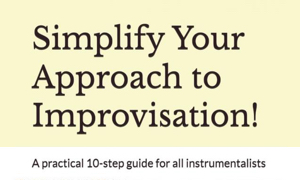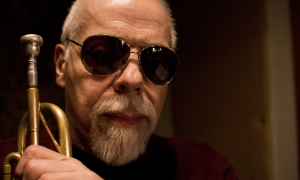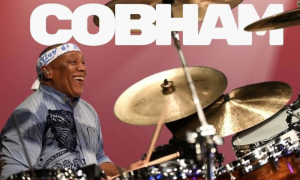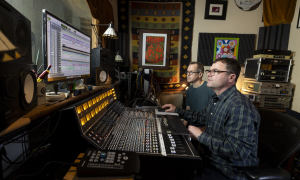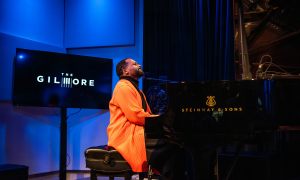During the 1960s, as the U.S. spent billions to beat the Soviet Union to the moon and fight a war in Vietnam, another expensive race was taking place in Europe. Air France and British Airways had joined forces to develop a supersonic passenger plane ahead of the Soviets and the Americans.
When the Concorde took off for the first time in March 1969—just four months before the American moon landing—it opened a new era in aviation and offered enormous promise. A flight that had taken eight hours from Paris to New York was cut to 3 1/2 hours, and the flights themselves offered the heights of luxury—or at least the service, wine and food were spectacular. The seats and cramped cabin had room for improvement.
The Concorde is the most beautiful passenger plane ever designed or produced. Its lines were long, sleek and smooth, its wings were swan-like as they fanned out from the body, the nose cone dipped on the ground and at takeoff for pilot visibility and raised up in flight, and even the back end looked impressive. As with Boston's John Hancock Tower and Paris's Arc de Triomphe, I could stare at the Concorde from every angle for hours. Such impossible poetry and grace in design.
But as glorious and glamorous as supersonic travel seemed in the 1970s, the technology faced a number of challenges that couldn't be fully overcome. By the early 1970s, the environmental lobby in the U.S. bristled at the enormous amount of black exhaust spewing from the plane's tail at take off. There also was the glass- shattering double sonic boom that unnerved residents near airports. And then there was the prohibitive cost of maintenance and skyrocketing price of fuel during the decade's two OPEC oil shortages.
Nevertheless, both France and Britain went on to operate regular return-trip flights from Paris to New York and London to New York and then to Washington, D.C. starting in the early 1970s. Rock and film stars in a hurry to travel between homes were typical commuters early on followed by financial titans. By the late 1980s, British Airways and Air France began to show a profit by charging twice what it cost to fly first class on a 747. As demand eased, the airlines made money by leasing out the planes for charter purposes to tour companies.
The end wasn't pretty. In July 2000, an Air France Concorde crashed in Gonesse, France, after departing from Paris due to a series of fatal, cascading problems caused by human error. The following year, after 9/11, air travel quickly became less lofty and more utilitarian and arduous with heightened security and fear. The last commercial Concorde flight was in October 2003. And so ended the vision of faster, more lavish commercial air travel between global cities. [Photo above courtesy of YouTube]
The future quickly reverted to the past. Airlines no longer were headed by dreamers and those captivated by the world of tomorrow. Instead, bean-counters were installed to squeeze the space, cut the amenities and make the experience on par with catching a ride in a cattle truck. Sadly, commercial jet travel today takes as long as it did in the 1960s and has never been more stressful, uncomfortable or displeasing. And airfares have never been higher, costly, especially for those flying business. As for those bean-counters? They couldn't care less, since their goal has been achieved: Zero competition by the airlines over pricing.
Here's a wonderful BBC documentary on the rise and termination of the supersonic passenger jet, when flying still was a romantic journey into the future...
And here's a view from the cockpit of a British Airways Concorde taking off from Heathrow Airport in London and landing in Washington, D.C...
When the Concorde took off for the first time in March 1969—just four months before the American moon landing—it opened a new era in aviation and offered enormous promise. A flight that had taken eight hours from Paris to New York was cut to 3 1/2 hours, and the flights themselves offered the heights of luxury—or at least the service, wine and food were spectacular. The seats and cramped cabin had room for improvement.
The Concorde is the most beautiful passenger plane ever designed or produced. Its lines were long, sleek and smooth, its wings were swan-like as they fanned out from the body, the nose cone dipped on the ground and at takeoff for pilot visibility and raised up in flight, and even the back end looked impressive. As with Boston's John Hancock Tower and Paris's Arc de Triomphe, I could stare at the Concorde from every angle for hours. Such impossible poetry and grace in design.
But as glorious and glamorous as supersonic travel seemed in the 1970s, the technology faced a number of challenges that couldn't be fully overcome. By the early 1970s, the environmental lobby in the U.S. bristled at the enormous amount of black exhaust spewing from the plane's tail at take off. There also was the glass- shattering double sonic boom that unnerved residents near airports. And then there was the prohibitive cost of maintenance and skyrocketing price of fuel during the decade's two OPEC oil shortages.
Nevertheless, both France and Britain went on to operate regular return-trip flights from Paris to New York and London to New York and then to Washington, D.C. starting in the early 1970s. Rock and film stars in a hurry to travel between homes were typical commuters early on followed by financial titans. By the late 1980s, British Airways and Air France began to show a profit by charging twice what it cost to fly first class on a 747. As demand eased, the airlines made money by leasing out the planes for charter purposes to tour companies.
The end wasn't pretty. In July 2000, an Air France Concorde crashed in Gonesse, France, after departing from Paris due to a series of fatal, cascading problems caused by human error. The following year, after 9/11, air travel quickly became less lofty and more utilitarian and arduous with heightened security and fear. The last commercial Concorde flight was in October 2003. And so ended the vision of faster, more lavish commercial air travel between global cities. [Photo above courtesy of YouTube]
The future quickly reverted to the past. Airlines no longer were headed by dreamers and those captivated by the world of tomorrow. Instead, bean-counters were installed to squeeze the space, cut the amenities and make the experience on par with catching a ride in a cattle truck. Sadly, commercial jet travel today takes as long as it did in the 1960s and has never been more stressful, uncomfortable or displeasing. And airfares have never been higher, costly, especially for those flying business. As for those bean-counters? They couldn't care less, since their goal has been achieved: Zero competition by the airlines over pricing.
Here's a wonderful BBC documentary on the rise and termination of the supersonic passenger jet, when flying still was a romantic journey into the future...
And here's a view from the cockpit of a British Airways Concorde taking off from Heathrow Airport in London and landing in Washington, D.C...
This story appears courtesy of JazzWax by Marc Myers.
Copyright © 2026. All rights reserved.







